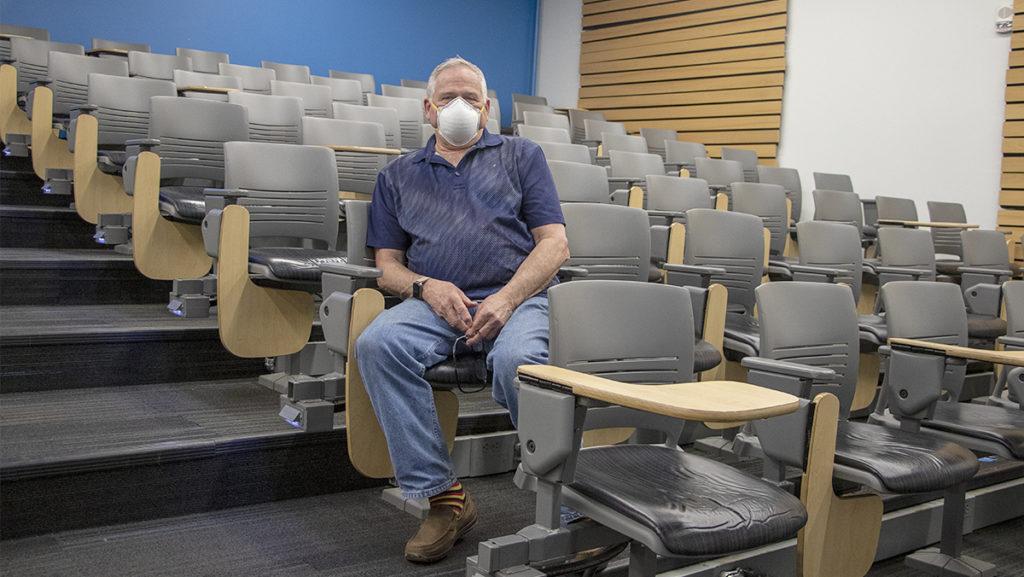This campus is in a moment of multiple, overlapping crises. The pandemic has forced us into physical alienation from one another and has brought sudden and deep economic stresses. This is also a moment of grief as we see valued friends and colleagues, both staff and faculty, lose their positions and livelihoods.
Our community is fractured.
I am committed to the longevity and sustainability of the college. As a faculty member, I celebrate its legacy of educating scholars, practitioners, activists and performers. I support the staff, faculty and students of the college who will bear the brunt of forthcoming cuts.
I recognize that faculty have an important role to play with administration in the shared governance of the college. A robust commitment to collaborative shared governance is needed now to move the college through this dark time.
Collaborative shared governance will ensure that the college thrives long after we are gone.
What is shared governance?
Shared governance constitutes a cornerstone of all institutions of higher education. It is a system of roles and responsibilities distributed across stakeholder groups that recognizes distinct expertise. It clearly defines relevant areas of accountability and decision-making power.
For example, administrators are responsible for the financial management of the college, whereas faculty are responsible for the curriculum. Staff and students hold governance roles as well through their councils as representative bodies that consult on workplace matters and campus life initiatives.
Shared governance is a unique and very important system that distinguishes higher education from other types of organizations – and the emphasis is on shared.
What does shared governance look like in practice?
- Collaboration through open, transparent processes that meaningfully include all of the relevant stakeholders for the issue at hand. Information flows in both directions. This exchange is valued by all stakeholders.
- Deliberative and iterative processes are the hallmark of shared governance, as they consider and incorporate stakeholder input. Solutions arise from discourse, feedback, adjustment, more discourse and yet more feedback.
- Dynamic (not static) action plans are developed. Each iteration of the discourse shows evidence of listening on all sides and provides rationales with supporting evidence for the positions that stakeholders take and the decisions that are made.
- Respect is palpable. Respect is multifaceted. It includes respect for each other as individuals with a common goal, for stakeholders’ positions within the institution, for representatives who convey a multiplicity of constituent opinions and for the expertise that each stakeholder group can bring to an issue.
- Decisions are accepted when the decision-making process is sound. Not all stakeholders will always get their way. However, with strong collaborative shared governance, stakeholders will see their ideas represented in the process, either in the decision they support or in the careful rationale for that decision that reflects the deliberative process supported by evidence.
As a community, we have embraced these values even in the recent past. The shared work of rapidly transforming our institution into a rich online experience for our students showed how we can come together across the entire institution to achieve creative solutions despite unprecedented challenges.
However, the Academic Prioritization Process (APP) has riven the campus community. The APP rapidly progressed despite vigorous attempts by faculty, students and alumni stakeholders to share their insight, expertise and perspective. These stakeholders longed to see evidence that their voices, some solicited and some volunteered, had also been heard. Instead, a plan is being executed that shows no sign that any input from these multiple stakeholders produced meaningful change of any kind.
The process has ruptured our community.
We cannot bridge these divisions without a profound commitment to the shared power of our community.
Moving forward we need meaningful collaboration, mutual respect and a stronger commitment from all stakeholders to real and robust shared governance. This is crucial to the future of Ithaca College.



















